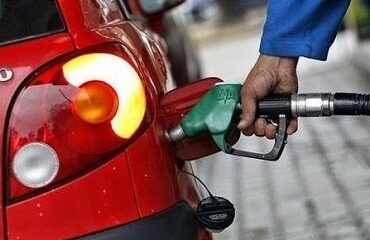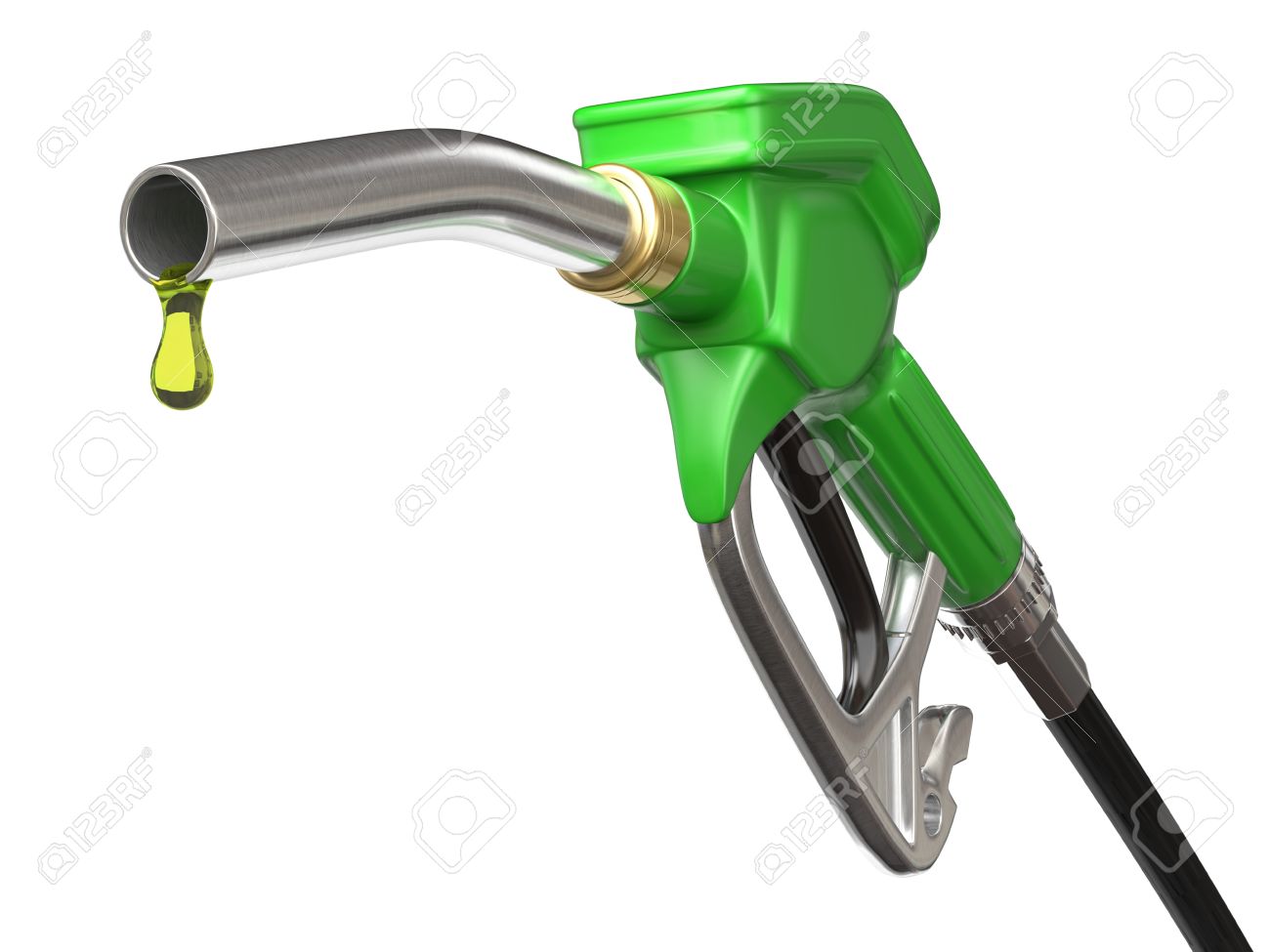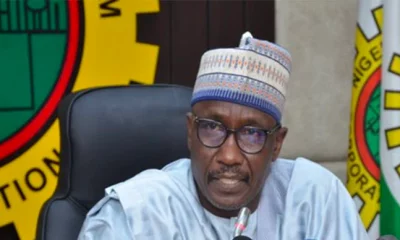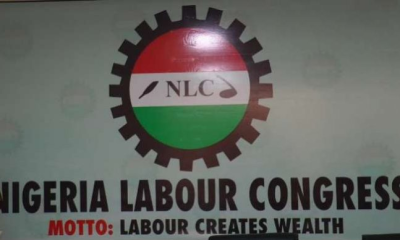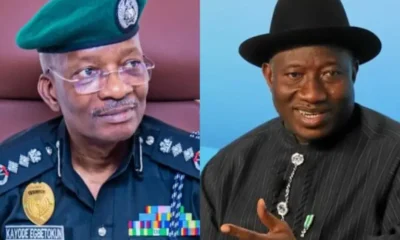Business
Marketers Predict Six-month Fuel Scarcity, Prices Rise
Published
1 year agoon
By
Editor
The supply hitches associated with the distribution of Premium Motor Spirit, popularly called petrol, may persist till June this year, oil marketers stated on Wednesday.
Nigeria’s downstream oil sector has been grappling with cases of incessant petrol scarcity since last year.
The sole importer of the commodity – Nigerian National Petroleum Company Limited, has repeatedly complained of the enormous burden of shouldering fuel subsidy for the country.
On Monday, the Minister of State for Petroleum Resources, Chief Timipre Sylva, said NNPC was selling petrol at a loss because of its mandate from the Federal Government as regards fuel subsidy.
“If you are a businessman, look at it from this perspective, that you are now in the business where you are mandated to sell at a loss to the public. That is not an easy job, I must tell you,” the minister stated.
Last week, the Minister of Finance, Budget and National Planning, Zainab Ahmed, said the Federal Government had budgeted about N3.6tn for fuel subsidy till June 2023.
Reacting to the development, oil marketers stated on Wednesday that the fuel supply crisis in many parts of the country that often leads to fuel scarcity, might persist till June, based on the government’s plan to end petrol subsidy in that month.
READ ALSO: FG Disburses N173bn For Uniform Fuel Price Nationwide
The National Public Relations Officer, Independent Petroleum Marketers Association of Nigeria, Chief Ukadike Chinedu, told our correspondent that fuel imports and subsidy were making Nigerians suffer.
He said, “This issue of subsidy and the importation of petroleum products are the major reasons why we are suffering like this and having epileptic supply of PMS. This may drag till the current administration leaves in May or till June this year.
“The exchange rate is affecting fuel imports, which is also why the cost of petroleum products are high. We use too much naira to chase the few dollars that are available. So the solution is for us to refine our crude here and get our depots working.”
He added, “Also, we should note that most times when an administration is leaving, there is usually scarcity of products. It happened during the time of former President Goodluck Jonathan.
“This is because suppliers will be very weary of selling petroleum products so that their debts will not be carried over to the next administration. Successive governments have suffered this epileptic distribution of petroleum products during transition to a new government.
“The government is winding up, and if you are a supplier you have to be careful in terms of supplying petroleum products. Remember that when Jonathan was there, marketers who were supplying products stopped and went on strike, demanding that they must be paid their arrears.”
The President, Petroleum Retail Outlet Owners Association of Nigeria, Billy Gillis-Harry, also stated that the availability of petrol for marketers to distribute had remained an issue of concern.
READ ALSO: Fuel Scarcity: Students, Group Back DSS’ Ultimatum, Blasts Falana
“Let there be products to sell. That is what we are yearning for. Once that problem is sorted, then others shall be addressed too,” he stated.
Commenting on the issue, a former President, Association of National Accountants of Nigeria, Dr. Sam Nzekwe, told our correspondent that the crisis in the downstream oil sector would be best addressed when Nigeria’s refineries become functional.
IPMAN complains
The Chairman, IPMAN Satellite depot, Akin Akinrinade, told The PUNCH that its members were yet to take delivery of any product from the state oil firm.
He said, “We have yet to see anything. They promised us something in December, but now they said January. All they’ve done is ask us to submit names and change from the old system-NNPC Express to NNPC Retail. Other than that, we are yet to receive any product.
“But I can assure you that this scarcity will continue well after June if NNPCL does not supply us products directly and at regulated price.”
Akinrinade also said the price of fuel had hit between N222/N225 at private depots as of last Friday.
National Operations Controller, IPMAN, Mike Osatuyi, also told The PUNCH that his members were yet to get any product from the NNPCL.
“We are still waiting. We will wait until the middle of this month before we react. But as of last week, our members buy fuel above N200 per litre. But information reaching me is that as of today, the price has increased to N230 per litre, without transportation and other expenses”, he said.
In December, Osatuyi had told The PUNCH that his members were holding strategic meetings with the new NNPCL Retail Managing Director, Hubb Stockman, who promised to supply them products directly at government regulated price of N148/litre starting from this month.
However, members of the association, according to Osatuyi and Akinrinnade, were yet to receive any products despite having compiled necessary lists, and switching from the old NNPCL Express platform, to the NNPCL Retail as directed by Stockman.
The PUNCH reached out to the Executive Secretary of the Major Oil Marketers Association of Nigeria, Clement Isong, on why some of its members did not have products.
He had yet to respond as of the time of filing this report.
However, a top member of the MOMAN who claimed anonymity told The PUNCH, that although the scarcity had eased, some of its stations currently do not have supplies.
“The scarcity has eased and things have gone back to normal. No queues and our stations sell at normal regulated prices. However, some of our stations who don’t have supplies will be supplied”, he told The PUNCH.
The spokesperson for the Depots and Petroleum Products Marketers Association of Nigeria, Adewole Olufemi, said the depots were in need of more fuel supplies from the NNPCL.
READ ALSO: ‘Why Fuel Scarcity, Long Queues Persist In Nigeria’
“Until and unless the queues are completely eliminated, we’ll require more volume than usual, DAPPMAN cannot be satisfied. We’re working with the sole supplier, NNPC Ltd and the regulator to ensure PMS is available nationwide”, he said regarding the scarcity.
On skyrocketing ex-depot’s prices, Adewole said just like the NNPCL, depot owners were also on a recover-all-cost regime.
“Costs incurred by marketers, vessel chartering, trucking and approved margins will be recovered just as NNPC Ltd does to recover its cost inputs”, he added.
The spokesperson for NNPCL, Garba Deen, could not be reached on his official line for his comment.
PUNCH
You may like


Citizens Groan As Petrol Sells For Over N1000 Per Litre In Kaduna


Fuel Price May Fall As Petrol Vessels Berth At Port


Marketers Eye Fresh Fuel Price Hike As Crude Hits $94


NNPCL Clears The Air On Rumoured Plan Increase In Fuel Price


Fuel Hike: NLC Threatens Fresh Strike


Reps Reject Call For Suspension Of New Fuel Price Of N617

The Central Bank of Nigeria (CBN) started fresh and direct sales of US dollars at N1,021 per dollar to Bureau De Change operators.
Nigeria’s apex bank disclosed this in a circular signed by its Director of Trade and Exchange Department Hassan Mahmud.
“We write to inform you of the sale of $10,000 by the Central Bank of Nigeria (CBN) to BDCs at the rate of N1,021/$1. The BDCs are in turn to sell to eligible end users at a spread of NOT MORE THAN 1.5 percent above the purchase price,” the circular posted on its website read.
READ ALSO: Tinubu Unveils African Counter-Terrorism Summit
“ALL eligible BDCs are therefore directed to commence payment of the Naira deposit to the underlisted CBN Naira Deposit Account Numbers from today, Monday, April 22, 2024, and submit confirmation of payment, with other necessary documentations, for disbursement of FX at the respective CBN Branches.”
CBN’s move is coming as the naira is recording a slight depreciation against the dollar after weeks of gains.
In late March, the bank also sold $10,000 to each of the eligible Bureau De Change (BDC) operators in the country at the rate of N1,251/$1.
READ ALSO: Mixed Reactions Trail Video Of Couple’s Customised N200 Notes
Like in the most recent sales, it warned BDCs against breaching terms of the dollar sales, vowing to sanction defaulters “including outright suspension from further participation in the sale”.
The fortunes of the naira have fallen sharply since President Bola Tinubu took over in May. Inflation figures have reached new highs and the cost of living hitting the rooftops.
Nigeria’s currency slid to about N1,900/$ some months ago at the parallel market. But in recent weeks, it has gained against the dollar.
The Nigerian authorities have also doubled down on their crackdown against cryptocurrency platform Binance and illegal BDCs.
On March 1, the CBN revoked the licences of 4,173 BDCs over compliance failures.
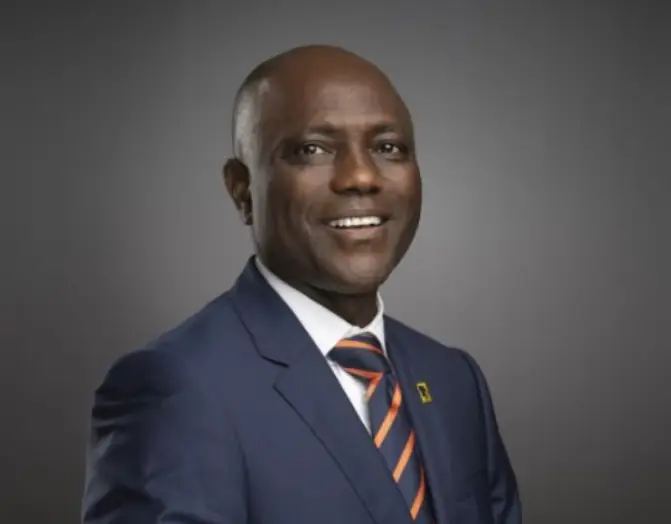
Olusegun Alebiosu has been appointed as the Acting Managing Director/Chief Executive Officer of First Bank of Nigeria Limited (FirstBank Group), effective April 2024.
Alebiosu steps into this pivotal role from his previous position as the Executive Director, Chief Risk Officer, and Executive Compliance Officer, a position he held since January 2022.
Alebiosu brings to the helm of FirstBank over 28 years of extensive experience in the banking and financial services industry. His expertise spans various domains including credit risk management, financial planning and control, corporate and commercial banking, agriculture financing, oil and gas, transportation, and project financing.
READ ALSO: JUST IN: Access Holdings Names New Acting CEO
Having embarked on his professional journey in 1991 with Oceanic Bank Plc. (now EcoBank Plc.), Alebiosu has held several notable positions in esteemed financial institutions.
Prior to joining FirstBank in 2016, he served as Chief Risk Officer at Coronation Merchant Bank Limited, Chief Credit Risk Officer at the African Development Bank Group, and Group Head of Credit Policy & Deputy Chief Credit Risk Officer at United Bank for Africa Plc.
Alebiosu’s academic credentials further enrich his professional profile. He is an alumnus of the Harvard School of Government and holds a Bachelor’s degree in Industrial Relations and Personnel Management. Additionally, he obtained a Master’s degree in International Law and Diplomacy from the University of Lagos, as well as a Master’s degree in Development Studies from the London School of Economics and Political Science.
READ ALSO: Meet Newly Appointed Union Bank CEO
A distinguished member of various professional bodies, including the Institute of Chartered Accountants (FCA), Nigeria Institute of Management (ANIM), and Chartered Institute of Bankers of Nigeria (CIBN), Alebiosu is renowned for his commitment to excellence and ethical practices in the banking sector.
Beyond his professional endeavors, Alebiosu is known for his passion for golf and adventure. He is happily married and a proud parent.
With Alebiosu’s appointment, FirstBank of Nigeria Limited anticipates continued growth and innovation under his leadership, reinforcing its position as a leading financial institution in Nigeria and beyond.
Business
CBN Gives New Directive On Lending In Real Estate
Published
1 week agoon
April 17, 2024By
Editor
The Central Bank of Nigeria, CBN, has released a new regulatory directive to enhance lending to the real sector of the Nigerian economy.
The directive, issued on April 17, 2024, with reference number BSD/DIR/PUB/LAB/017/005 and signed by the Acting Director of Banking Supervision, Adetona Adedeji, signifies a notable shift in the bank’s policy towards a more contractionary approach.
In line with the new measures, the CBN has reduced the loan-to-deposit ratio by 15 percentage points, down to 50 per cent.
This move aligns with the CBN’s current monetary tightening policies and reflects the increase in the Cash Reserve ratio rate for banks.
READ ALSO: JUST IN: CBN Gov Sacks Eight Directors, 32 Others
The LDR is a metric used to evaluate a bank’s liquidity by comparing its total loans to its total deposits over the same period, expressed as a percentage.
An excessively high ratio may indicate insufficient liquidity to meet unexpected fund requirements.
All Deposit Money Banks are now mandated to adhere to this revised LDR.
The CBN has stated that average daily figures will be utilised to gauge compliance with this directive.
Furthermore, while DMBs are encouraged to maintain robust risk management practices in their lending activities, the CBN has committed to continuous monitoring of adherence and will adjust the LDR as necessary based on market developments.
READ ALSO: JUST IN: CBN Increases Interest Rate To 24.75%
Adedeji has called on all banks to acknowledge these modifications and adjust their operations accordingly. He emphasised that this regulatory adjustment is anticipated to significantly influence the banking sector and the wider Nigerian economy.
The circular read in part, “Following a shift in the Bank’s policy stance towards a more contractionary approach, it is crucial to revise the loan-to-deposit ratio policy to conform with the CBN’s ongoing monetary tightening.
“Consequently, the CBN has decided to decrease the LDR by 15 percentage points to 50 per cent, proportionate to the rise in the CRR rate for banks.
“All DMBs must maintain this level, and it is advised that average daily figures will still be applied for compliance assessment.
“While DMBs are urged to sustain strong risk management practices concerning their lending operations, the CBN will persist in monitoring compliance, reviewing market developments, and making necessary adjustments to the LDR. Please be guided accordingly.”

Three Suspected Pipeline Vandals Caught In Edo
Cultists Arrested For Invading Anambra Hotel With Charms

LASTMA, Viju Officials Clash Leaves 10 Injured
Trending

 Entertainment4 days ago
Entertainment4 days agoBridesmaids’ Dance At Wedding Causes Stir On Social Media [VIDEO/PHOTOS]

 Metro4 days ago
Metro4 days agoVIDEO: ‘UNN Lecturer’ Caught Pants Down With Married Student

 News2 days ago
News2 days agoDrama! Supporters Of Yahaya Bello Perform Rituals to Prevent His Arrest By EFCC [Video]

 Headline3 days ago
Headline3 days agoDrama As Women Fight Dirty, Breasts Fall Out During Spring Break Outing In US [PHOTOS/VIDEO]

 News3 days ago
News3 days agoVIDEO: Force PRO Orders Arrest Officers Caught On Video Bashing Driver’s Car

 Entertainment3 days ago
Entertainment3 days agoNollywood Actor, Zulu Adigwe Is Dead

 Headline3 days ago
Headline3 days agoMeet 17-year-old Nigerian Who Won $3.5m Worth Of Scholarships From Harvard, 13 Other Foreign Universities

 Metro2 days ago
Metro2 days agoEdo Cultists Kill Rival In Daughter’s Presence, Abandon Getaway Car

 News4 days ago
News4 days agoIGP, Jonathan Disagree Over State Police

 Headline3 days ago
Headline3 days agoVideo Of Girl Being Bullied, Slapped At Lead British School Sparks Outrage Online [PHOTOS/VIDEO]
